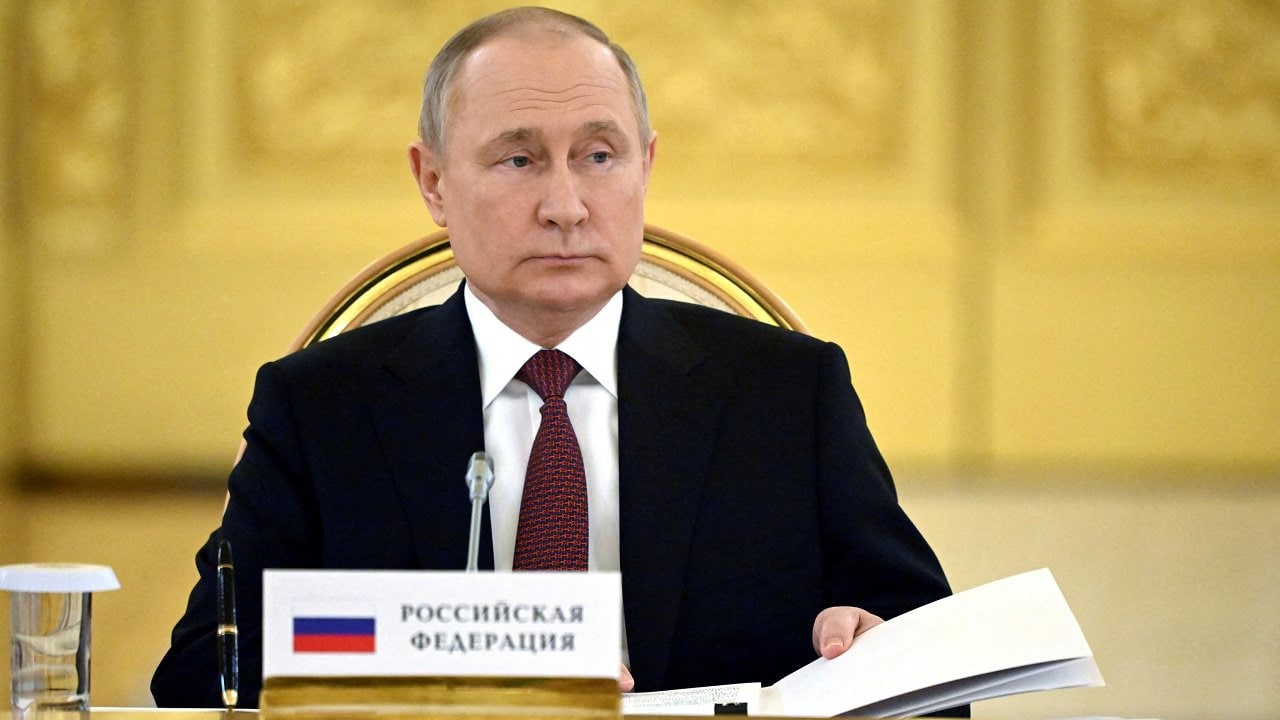Just as Western voices urging immediate negotiations with Vladimir Putin are getting louder, the Russian dictator poured ice-cold water over naïve hopes of a quick resolution of the Russo-Ukrainian War.
At a meeting with Russia’s Internet “war correspondents” on June 14, Putin asked the following question: “Why should they [the Ukrainians] also live on our historical territories at our expense?”
In other words, Putin believes that all or part of Ukraine is historically Russian territory and that Ukrainians living in what they believe is Ukraine are actually living in Russia.
None of this is new, as Putin and his propagandists have made similar claims innumerable time.
Still, it bears repeating and reemphasizing: Putin and his entourage believe that Ukraine has no historical legitimacy, that it does not exist, and that Ukrainians are occupying Russia—and not that Russians are occupying Ukraine.
Seen in this light, Russia’s invasion of February 24, 2022 was a defensive move and not an imperialist land grab. And Ukrainians are, of course, either deluded Russians who have yet to understand who they really are or imperialist neo-Nazis who desire to crush peaceful Russia.
There is no compromise between the Ukrainian belief that they exist and that Ukraine consists of territories that are historically Ukrainian and Putin’s view to the contrary.
Just what is there to negotiate about when one side, Putin, denies the very existence of the other side, the Ukrainians?
Unbeknownst to him, perhaps, Putin is playing with a double-edged sword. The huge Russian Federation consists for the most part of territories that were never historically Russian. Were one to apply Putin’s rule to Russia, all of Siberia, much of northwestern and southern Russia (including St. Petersburg!), as well as all the Ukrainian territories Russia currently occupies would have to revert to scores of non-Russian nations relegated to subordinate status within the Russian Federation. Russia would become a mini-state centered on Moscow and a few other neighboring cities.
Which, come to think of it, wouldn’t be a bad thing…
A 19FortyFive Contributing Editor, Dr. Alexander Motyl is a professor of political science at Rutgers-Newark. A specialist on Ukraine, Russia, and the USSR, and on nationalism, revolutions, empires, and theory, he is the author of 10 books.
From 19FortyFive
Ukraine Footage Shows U.S. M982 ‘Excalibur’ Cut Through Russian Artillery
How To Sink A $3 Billion Dollar Submarine: Leave A Hatch Open
Smashed To Pieces: Video Shows Ukraine Hitting Russian Air Defenses

